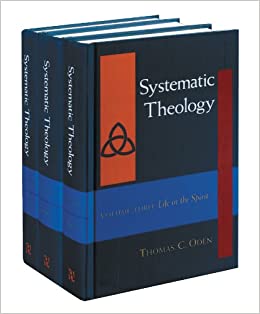The text below was taken from R. C. Sproul’s book Somos Todos Teologos by Editora Fiel.
Systematic theology is based on certain premises: the first is that God has revealed himself not only in nature, but also through the writings of prophets and apostles and that the Bible is the Word of God, is the theology par excellence. They are the complete logos of theos.
- The second premise is that by revealing Himself.
- God does so according to his own character and nature.
- The scriptures tell us that God created an ordained cosmos.
- He is not the author of confusion.
- Because he is never confused.
- God thinks clearly.
- And speaks intelligiblely.
- To be understood.
A third premise is that God’s revelation in the scriptures manifests the qualities of His character. There is unity in the Word of God, despite the diversity of its authors. The Word of God has been written for many centuries by many authors and addresses a variety of All the facts we find in the Scriptures – future things, atonement, incarnation, judgment of God, god’s mercy, God’s wrath – have their unity in God Himself, therefore, when God speaks and reveals himself, there is unity in this content , a coherence.
God’s revelation is also consistent, someone has already said that coherence is the shame of the lower minds, but if this were true, it should be said that God has a inferior mind, because in his being and character, he is totally coherent. the same yesterday, today and always (He is 13,8).
These premises guide the systematic theologian as he performs his work of considering the full spectrum of Scripture and investigating how he harmonizes as a whole. In many seminars, the department of systematic theology is separated from the New Testament department and the Old Testament department. This is because the systematic theologian has a different purpose than the Old Testament teacher and the New Testament teacher. Biblical scholars focus on how God has revealed himself at various times over time, while the systematic theologian takes this information, collects it, and shows how this information fits into a meaningful whole, it is certainly a difficult task, and I am sure that no one has done it perfectly.
Since I am dedicated to systematic theology, I am always amazed at the specific and complex coherence of the scope of divine revelation; systematic theologians understand that each point of theology is aimed at each other; when God speaks, every detail he utters has an impact on all other details, so our constant task is to see how all the pieces fit into an organic, meaningful and coherent whole.
In this book, the author states that we are all theologians whenever we seek answers about the teachings of the Bible or intentionally ignore them, which helps us study and interpret the scriptures correctly to make good theology.
Written by the eminent theologian R. C. Sproul, this introduction to systematic theology guides us on the main themes of the Christian faith, through an in-depth study of the Scriptures and the history of the Church that allows us to formulate a theology for daily life.
Check

